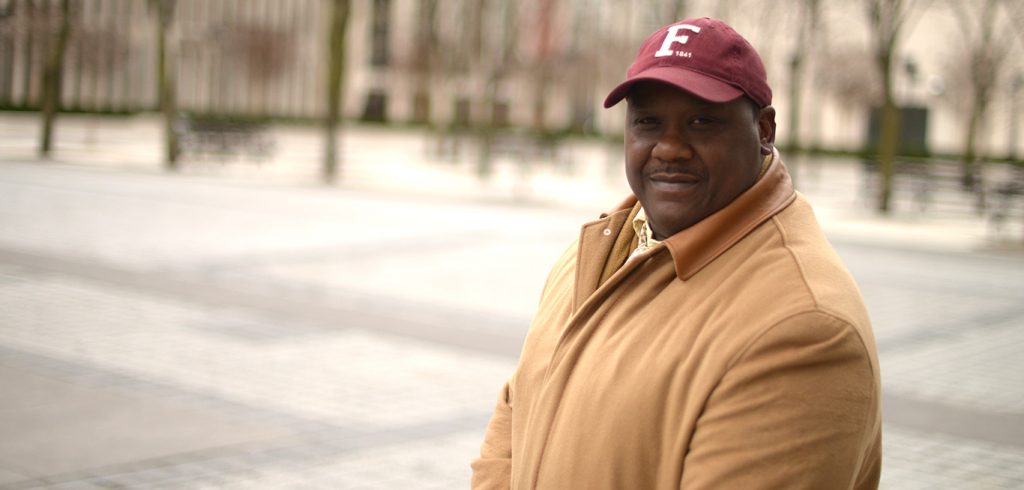In 1993, Lamont Young was shot seven times at point-blank range and nearly died.
In 2018, he will graduate from Fordham’s Graduate School of Education with a master’s degree in mental health counseling.
“My grandmother came to the hospital, and the doctor said he couldn’t stop the bleeding,” Young said of that tragic day. “She said, ‘I don’t wanna hear that.’ She prayed and prayed.” And while she did, the doctors got the bleeding under control.
“When I woke up, my mother was at my bedside saying I was gonna be OK. I thought I’d died, and when I woke up I just burst out crying,” he said.
That experience, the result of a run-in with an acquaintance who was high on PCP, profoundly changed him. He’d already started to turn away from a life of gangs, drugs, and violence thanks to the Young Men’s Leadership Group, an after-school program that Special Olympics Chairman Timothy Shriver started at Young’s New Haven high school. But it was the strength he summoned to forgive his assailant that inspired him to devote his life to helping others.
In 2013, after years of working at rehab centers and homeless shelters in New York City, he earned a bachelor’s degree at the College of New Rochelle’s Rosa Parks Campus in Harlem. He knew he wanted to go on to graduate work at a top university.
“I said, ‘In order to best serve the population that I would like to work with, I need to enroll in a school that’s diverse and sticks to their principles and their mission statement of social justice,’” he said. He applied to Fordham and was accepted.
Shriver, who visited Young’s bedside the day he was shot, said he was blown away when Young told him he was pursuing a master’s degree.
“How many people who’ve been through what he’s been through get degrees at all? Very few. How many people get these degrees with a vision for how to overcome insidious kinds of bias and self-defeating mentalities and cultural barri-ers? … He’s an outlier in every good way.”
Feelings of self-doubt made graduate school difficult at first, but Young credited GSE faculty members, particularly Professor Joseph G. Ponterotto, Ph.D., with helping him overcome his fears. In fact, Young mined his experiences for a research project on how African Americans interact and thrive in unfamiliar environments.
After graduation, Young will be volunteering at the AJS Wellness Center in New Rochelle and doing outreach for the Larry T. Young Foundation in New Haven, which he founded in honor of his deceased brothers Larry and Glenn. He’s planning to apply to doctoral programs in 2019.
He’s hopeful that his own ability to bounce back from adversity will help him inspire others.
“The African-American story of going through slavery and discrimination and still being able to look at someone in the face and say, ‘I love you brother’— that’s what makes us unique. That’s how we survived for 400 years. The perseverance and resilience,” he said.
“That’s my story.”

